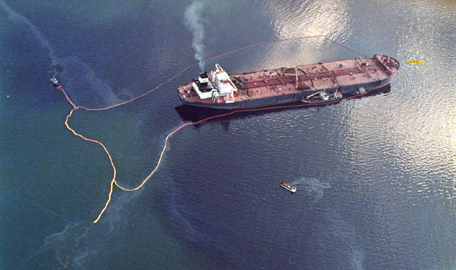Concerned residents and allies flood Biden Administration with tens of thousands of comments opposing new crude oil export projects along the Texas Gulf Coast
By: Lori Glover Published: February 10th, 2021
Crossposted from Earthworks’ blog
While the nation held its breath in fear of Covid-19 and a potential Trump coup d’etat of the democratic transfer of power, Texas communities and allies were responding to an imminent threat to coastal communities, ecosystems, and global climate.
From December through January Earthworks and allies scrambled to help the Brazoria County communities of Jones Creek, Freeport, and Surfside mobilize citizens locally and nationwide to speak out in public hearings and submit over 27,000 written comments to stop Texas GulfLink, a proposed mega crude oil offshore export terminal.
This powerful show of opposition reinforced the 40 Gulf voices that demanded United States Maritime Administration (MARAD)deny Texas GulfLink the Deep Water Port Permit at the virtual public hearings last December. Impacted residents expressed concerns about climate change and the negative impacts that pumping 2 million barrels of crude oil per day through their wetlands to the Gulf waters would have on water and air quality, flood control, the tourist economy, and marine and avian life.
“We’re still recovering from one of the worst hurricane seasons on record. The critically endangered Kemp’s Ridley and loggerhead turtles nest and lay eggs on our beaches and still haven’t fully bounced back from the impacts of 184 million gallons of oil spilled ten years ago by the Deepwater Horizon. GulfLink will pump 85 million barrels of crude oil per day. The risk is too great. Our wetlands, marshes, sea life, hundreds of bird species and our communities would be ruined by another big spill,” said Donna Robinson of Surfside Beach, TX.
Texas GulfLink is just one of a 9 new oil and gas export projects hoping to slip past the permitting finish line as the nation struggles to pull out of the pandemic: Sea Port Oil Terminal (SPOT), Texas Gulflink, Bluewater, Blue Marlin, Axis Midstream, Max Midstream, Jupiter, Lone Star, and Moda. Sentinel Midstream, Phillips 66, Enterprise Products Partners, Enbridge, Enterprise Transfer Partners and others are racing to be the first to build an offshore oil export terminal capable of loading VLLCs since the lifting of the national crude oil export ban in 2015.
Offshore, each of these projects has the potential to cause a spill reminiscent of the 2010 BP Deepwater Horizon disaster and emit 9000 tons of VOCs and 396 million tons of additional CO2 yearly. If GulfLink’s onshore 42” pipelines or storage tanks leak or rupture, toxic crude oil would pour into the Brazos River Watershed, contaminating the community water supply for thousands of people. The proposed 700,000 barrel storage tanks will sit within the Jones Creek community, releasing carcinogenic VOC emissions round the clock.
Amy Perry, a lifetime resident of Jones Creek, lives near the proposed site of GulfLink’s storage terminal.
“If they build this tank farm, our community will be surrounded by pollution. There’s already an oil tank farm two miles down the road. What’s going to happen to the quality of the air my children breathe? The VOCs from these storage tanks cause cancer. We don’t need more emissions. Our county is already in ozone nonattainment. Jones Creek is my home not an industry. ”
Not only do oil export projects like Texas Gulflink pose a serious threat to local communities on the Gulf Coast, they will drive the demand for increased oil and gas production in the Permian Basin, one of the biggest Carbon Bombs on the planet with the potential to unleash 44 billion tons CO2 into the atmosphere.
If any of these export projects are built, Biden’s Climate goals of Carbon Free Energy Sector by 2035 and Net Zero emissions by 2050 will likely be impossible to reach. More importantly, the Intergovernmental Panel on Climate Change (IPCC) has clearly stated we must transition from fossil fuels to renewable energy immediately if we are not to exceed 1.5 degrees Celsius.
Now is the time to honor the Paris Agreement, stop fossil fuel expansion, and reinstate the crude oil export ban. Now is the time for America to show-up as a reliable global partner in the fight against climate change—and that starts by stopping the destructive practice of exporting carbon pollution around the world.
After a record hurricane season, countless explosions in Houston, Corpus Christi, and Port Arthur, and a lifetime of struggling with cancer and air pollution, the Gulf Coast communities are sick and tired of being sacrifice zones for the oil and gas industry.
Join the Gulf from March 15 to March 19, the week of the Global Climate Strike, as communities and allies unite in a week of virtual actions to demand Biden protect the Gulf and the Planet and ban fossil fuel exports.
Earthworks extends special thanks to the following organizations for their partnership in our efforts to #StopGulfLink: Sierra Club, Oil Change International, Turtle Island Restoration Network, Texas Campaign for the Environment, Earthjustice, and Lone Star Legal Aid.

